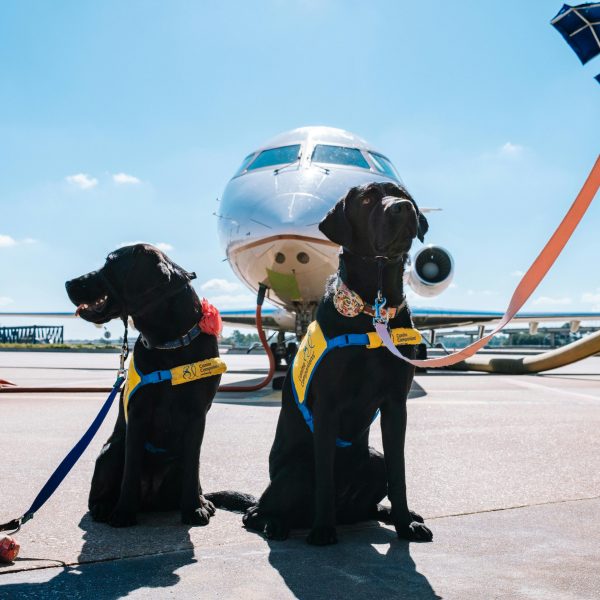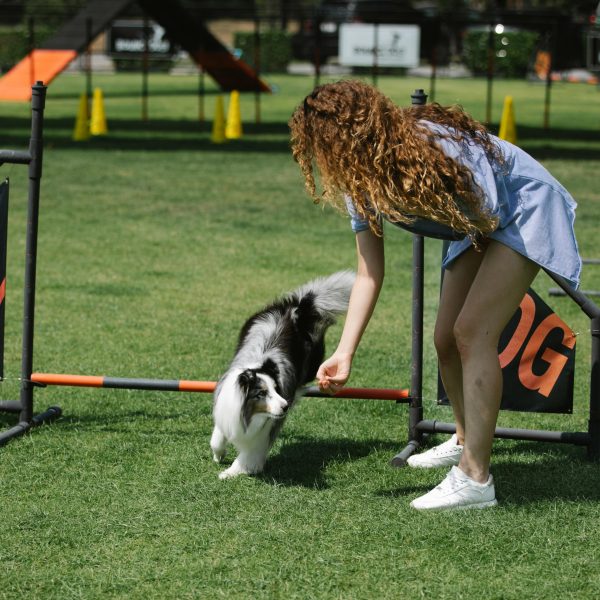For centuries, the bond between humans and animals has provided comfort, companionship, and emotional support. Over time, this relationship has evolved into something even more profound – training pets to assist individuals facing challenges due to special needs or disabilities. This transformative endeavor offers not only practical advantages but also fosters deep emotional connections that can change lives.
The Impact of Animal Assisted Therapy
Animal Assisted Therapy (AAT) is an innovative approach that integrates trained animals into the treatment process. It has gained significant recognition for its profound effects on individuals with special needs and disabilities, addressing physical, mental, and emotional conditions. Various animals, including dogs, cats, horses, and even dolphins, have been employed in AAT to achieve therapeutic goals.
One remarkable example is the use of service dogs for people with disabilities, playing a pivotal role in enhancing mobility and independence. These highly trained canines perform tasks such as retrieving objects, opening doors, and providing support to help their handlers maintain balance and stability. Such support substantially improves the quality of life for individuals facing mobility challenges, granting them newfound freedom and independence.
The Power of Emotional Support
Beyond physical assistance, animals also offer invaluable emotional support to individuals with special needs and disabilities. Dogs, in particular, possess an uncanny ability to sense human emotions and provide comfort during trying times. This insight has led to the development of Emotional Support Animals (ESAs), which are pets that offer companionship and solace to those with emotional or psychological conditions.
Consider individuals on the autism spectrum who often struggle with interactions and sensory sensitivities. Trained therapy dogs step in to alleviate these difficulties by offering a calming presence and acting as a bridge between the individual and the outside world. Animals’ nonjudgmental nature creates an environment that encourages engagement and emotional expression.
Tailored Training Approaches
Training animals to assist individuals with special needs and disabilities is a specialized process. It involves carefully selecting the appropriate type of animal based on the individual’s needs and then tailoring the training approach to effectively address those needs. Different types of disabilities require animals to possess specific skills, and trainers collaborate closely with professionals from various fields to ensure that the training aligns with therapeutic goals.
Trainers employ reinforcement techniques to encourage desired behaviors in animals. This not only helps animals acquire necessary skills but also strengthens the bond between the animal and its handler. Consistency, patience, and effective communication are essential aspects of training that ensure the animal fully comprehends its role and responsibilities.
The Transformative Connection
The relationship between individuals with special needs or disabilities and their trained animals is truly transformative. These animals evolve beyond mere companions; they become partners in navigating the challenges of everyday life. The bond formed between them transcends language barriers and societal norms, creating a connection built on trust, understanding, and mutual support.
Individuals who may have once felt isolated or restricted by their disabilities often experience a profound sense of empowerment and confidence through their partnership with a trained animal. This empowerment extends beyond the assistance provided by the animal, influencing all aspects of their lives. The presence of a capable companion can boost self-esteem, motivating individuals to explore new opportunities and experiences.
Future Directions and Considerations
While training pets for individuals with special needs and disabilities offers numerous advantages, it’s essential to consider the challenges involved. This process demands substantial resources, time, and expertise. Matching an individual’s specific needs with the abilities of the animal being trained is crucial.
Equally important is ensuring the well-being of these animals. Those responsible for their training and care must prioritize both the animals’ emotional health throughout the training process. Regular assessments, attention, and a nurturing environment are essential in maintaining the high standards of care required for these animals in their unique roles.
As advancements in the field of training pets for special needs and disabilities continue, there is a growing emphasis on research and innovation. Progress in animal behavior science, technology, and training methodologies contribute to more personalized approaches. Moreover, societal understanding and acceptance of the benefits provided by these trained animals are expanding, resulting in increased accessibility and support for those seeking to form these invaluable partnerships.
The Power of the Bond between Humans and Animals
Training pets to support special needs and disabilities is a testament to the remarkable bond between humans and animals. From providing practical assistance to offering unwavering emotional support, these animals serve as lifelines for individuals facing a wide array of challenges. The collaboration between humans and their trained animal companions showcases the remarkable ability of both species to understand, adapt, and develop. With ongoing advancements in this field, individuals’ lives are irrevocably transformed, underscoring the profound impact a wagging tail or a gentle nuzzle can have on the world.








